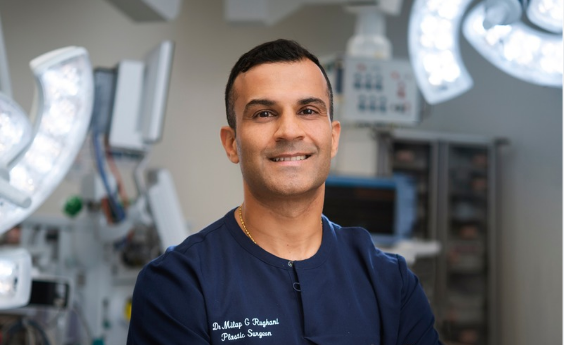Procedures
Injectable Fillers
- About Your Specialist Plastic Surgeon
- Cosmetic
- Non-surgical Procedures
- Plastic Surgery Glossary
- Questions for Your Surgeon
- Reconstructive
- Surgical Procedures
- Abdominoplasty (cosmetic)
- Abdominoplasty (muscle repair postpartum)
- Arm Lift
- Body Contouring
- Body Lift
- Breast Asymmetry Correction
- Breast Augmentation (implants)
- Breast Implants with Lift
- Breast Lift
- Breast Reconstruction
- Breast Reduction
- Brow Lift
- Burns and Scarring
- Chest Surgery
- Chin Surgery
- Cleft Lip & Palate
- Ear Surgery
- Eyelid Reduction Surgery
- Facelift Surgery
- Facial Implants
- Facial Procedures
- Fat Injection
- Genital Reconfiguration Surgery
- Gluteal Augmentation or Buttocks Lift
- Gynaecomastia (male breast reduction)
- Hair Replacement Surgery
- Hand Surgery
- Labiaplasty
- Liposuction
- Lymphoedema Surgery
- Nipple Enhancement for Inverted Nipples
- Nose Surgery
- Scar Revision
- Skin Cancer
- Thigh Lift
- Tissue Expansion
- Voice Surgery
Injectable Fillers
Any surgical or invasive procedure carries risks. Before proceeding, you should seek a second opinion from an appropriately qualified health practitioner.
Injectable fillers are materials that help to reduce the appearance of facial wrinkles, lines, folds and indented scars, and also to restore volume and fullness in the face.
Injectable fillers will improve visible signs of ageing by improving wrinkles and lines, and restoring the volume that is lost with ageing, smoking and sun exposure. Common uses for injectable fillers are to plump thin lips, soften facial creases and wrinkles such as nasolabial folds and marionette lines, improve contour depressions and restore volume to cheeks, and to improve the appearance of indented scars.
There are many types of injectable fillers available, including both temporary and permanent, as well as the option of using your own fat (see fat injection) and you should discuss your options with your Specialist Plastic Surgeon. Temporary fillers are much safer than permanent fillers, lasting from a few months to about a year, and temporary fillers are quick procedures that give immediate improvement to your area of concern.
Injectable fillers are an individualised procedure and may not be suitable for everyone. Always talk to your Specialist Plastic Surgeon before making a decision. Your Specialist Plastic Surgeon will assess your condition and general health, and plan the treatment that is best suited to you.
Injectable fillers may be suitable for you if:
- You are physically healthy and at a stable weight
- You have realistic expectations
- You have wrinkles, lines or folds on your face in areas such as
-
- Nasolabial folds
- Marionette lines
- Frown lines
- You have lost volume in your face with ageing or weight loss in areas such as
-
- Cheeks
- Lips
- Chin
- Eyebrows
- Temples
- Tear troughs
- Angle of the jaw
- You have indented scars such as chicken pox or acne scars
- You have contour depressions or irregularity on the nose
- You have signs of ageing on the back of the hands such as wrinkles, visible veins and hollowing
Before opting for injectable fillers, you must keep in mind that:
- Most injectable fillers are not permanent and need continuing treatments
- There are alternative options for longer lasting improvement of wrinkles such as laser resurfacing and dermabrasion
- There are alternative options for longer lasting improvement in contour and volume such as fat injection and dermal-fat grafts
Most injectable filler procedures are performed in your Specialist Plastic Surgeon’s rooms with or without local anaesthetic applied to the skin surface or injected underneath the area (some temporary injectables have local anaesthetic mixed with them). Fat injection can sometimes be performed under local anaesthetic but otherwise requires a general anaesthetic.
Modern anaesthesia is safe and effective, but does have some risks. Ask your Specialist Plastic Surgeon and anaesthetist for more information. Your surgeon and/or anaesthetist will ask you about all the medications you are taking or have taken, and any allergies you may have. Make sure you have an up to date list before the surgery.
Injectable fillers are generally safe but does have the potential for risks and complications to occur.
Some of the possible complications and risks associated with injectable fillers may include:
Immediate and short-lived
- Pain, bruising and swelling around the procedure site
- Allergic reaction to antiseptic solutions or injected material
- Infection that may require treatment with antibiotics or further surgery in some cases
- Formation of small lumps (nodules) under the skin, which may be palpable, visible or both
- Sensory change
- Vascular compromise and tissue necrosis (rare)
Delayed and longer term (less common)
- Movement of filler away from the injection site
- Allergic, inflammatory and autoimmune reactions such as nodules, which can be difficult to treat
- Infection
- Skin discolouration
- Localised scarring and skin damage
- Inadequate correction of the problem
- Further treatment may be necessary to address complications
Most injectable filler procedures are performed in your Specialist Plastic Surgeon’s rooms. Small amounts of fat injection can be performed under local anaesthetic in your Specialist Plastic Surgeon’s rooms. Larger amounts of fat injection can be performed in either an accredited day surgery or a hospital, depending on your general health and the extent of the procedure.Your Specialist Plastic Surgeon will advise on the best option for you.
Before undergoing surgery, it is important that you:
- Be as fit as possible to help the recovery process
- Check with your surgeon about your medications as some may need to be stopped
- Stop smoking
You will also be asked to provide a complete medical history for your Specialist Plastic Surgeon including any health problems you have had, any medication you are taking or have taken, and any allergies you may have.
You should stop taking certain medicines such as non-steroidal anti-inflammatory drugs (NSAIDs), aspirin, and medicines that contain aspirin. You may also be asked to stop taking naturopathic substances such as garlic, ginkgo, ginseng and St John’s Wort as they may affect clotting and anaesthesia. Always tell your surgeon EVERYTHING you are taking.
Your surgeon should give detailed pre-procedure instructions. Follow them carefully.
Following your procedure, you should rest and apply an ice pack to the area to minimise the swelling and chance of bruising. Avoid taking medicines such as non-steroidal anti-inflammatory drugs (NSAIDs), aspirin, and medicines that contain aspirin, as these will cause more bruising – use panadol based medications for pain relief. Avoid heavy lifting, strenuous exercise, swimming and strenuous sports for a day or two.Depending on the extent of your procedure, you may need to take a few days off work.
If you experience any of the following symptoms, notify your surgeon immediate:
- Increasing pain or tenderness, bruising or other problems that appear to be worsening
Your surgeon will give you specific instructions on post-procedure care. These instructions may include:
- How to care for the area after the procedure
- When to follow-up with your surgeon
Be sure to ask your surgeon specific questions about what you can expect during your individual recovery period, such as:
- When can I resume normal activity and exercise?
- When do I return for follow-up care?
In most circumstances, no initial procedures are required. However, as with all procedures, revisional procedures may be necessary to improve under correction of the problem or improve minor asymmetry.
Temporary injectable fillers last from a few months to a year or so, and further procedures are needed for continuing improvement of the area of concern.
Cost is always a consideration in elective procedures. Prices for individual procedures can vary widely between Specialist Plastic Surgeons. Some factors that may influence the cost include the surgeon’s experience, the type of procedure used and the geographic location of the office.Your surgeon should welcome any questions you may have regarding fees.
Collagen:
A natural protein used as an injectable filler for soft tissue augmentation
Cupid’s bow:
The middle portion of the lip which has the upturn
Human fat:
Fat harvested from your own body and used as an injectable filler for soft tissue augmentation
Hyaluronic acid:
A natural substance found in the body used as a filler
Hydroxylapatite:
A mineral-like compound found naturally in human bone used as a filler
Injectable fillers:
Substances used to restore volume and a more youthful appearance
Local anaesthesia:
A drug injected directly to the site of an incision during an operation to relieve pain
Soft tissue augmentation:
The use of injectable fillers to restore volume and your youthful appearance
Visit the Plastic Surgery Glossary for more medical terms.
This website is intended to provide you with general information only. This information is not a substitute for advice from your Specialist Plastic Surgeon and does not contain all the known facts about this procedure or every possible side effect of surgery. It is important that you speak to your surgeon before deciding to undergo surgery. If you are not sure about the benefits, risks and limitations of treatment, or anything else relating to your procedure, ask your surgeon to explain. Patient information provided as part of this website is evidence-based, and sourced from a range of reputable information providers including the American Society of Plastic Surgeons, Better Health Channel and Mi-tec medical publishing.
Featured Stories

ASPS welcomes new Ahpra guidelines for Non-Surgical Cosmetic Practitioners
Sydney. June 3, 2025: The Australian Society of Plastic Surgeons…
Continue reading
